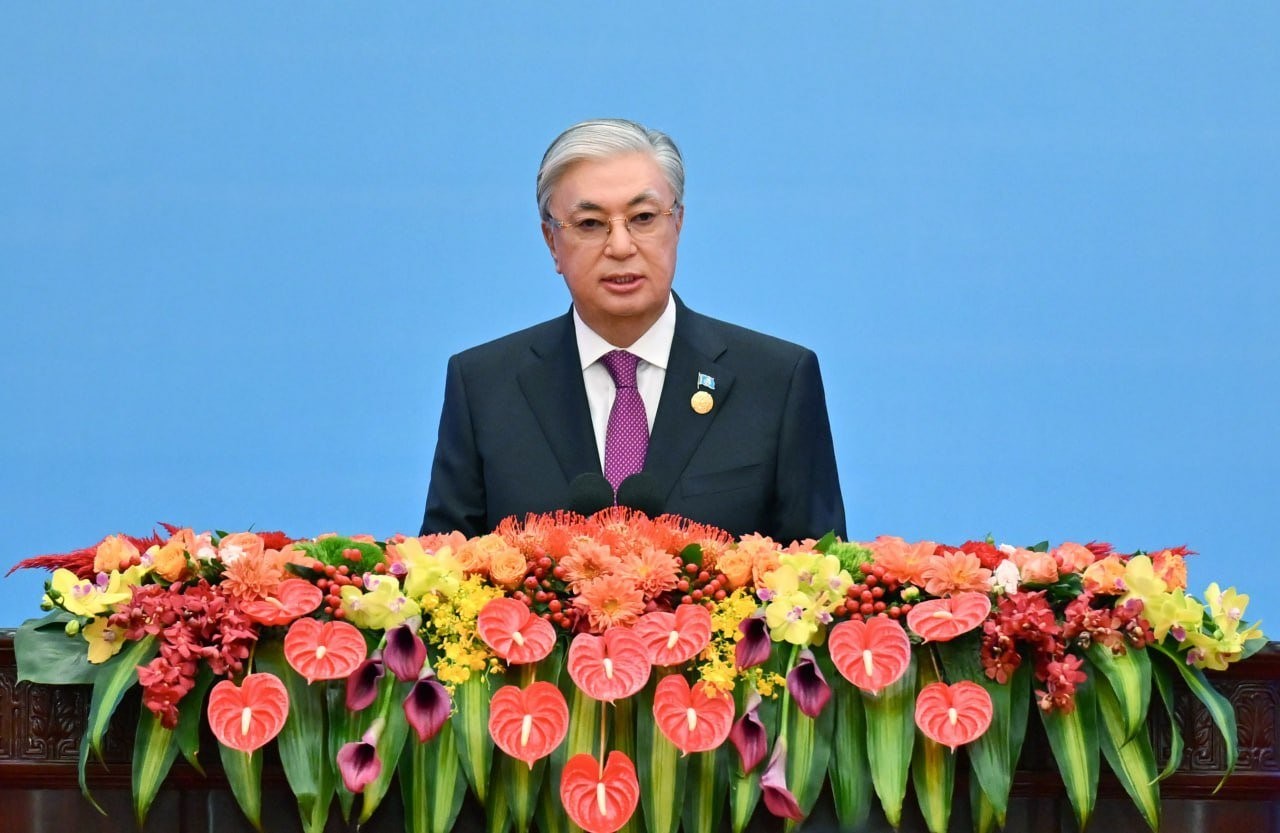Kazakhstan, a bridge between East and West
An article by the 'Foundation for Science and Politics' in Germany identifies Astana as a major frontier country in today's world. It highlights its ambition for its own 'strategic autonomy' in the delicate game of geopolitical balances. Favoured also by the new space opened up for its economy by the sanctions against Russia.
Astana (AsiaNews) - The German scientific analysis center "Foundation for Science and Politics" (SWP) has published a collection of articles dedicated to the states that experts define as "middle countries", and among the 12 presentations it stands out in particular that of Kazakhstan.
The list consists of Turkey, Israel, Egypt, Saudi Arabia, Kazakhstan, India, Indonesia, Ethiopia, Kenya, South Africa, Mexico and Brazil. These would be the "mediating powers, influential actors in the games of international politics", all different from each other, each with their own specific characteristics.
Furthermore, the twelve countries would have some very important common traits, starting from the priority importance of economic development, the strong emphasis placed on security and stability, and the tendency to maintain strategic autonomy.
Kazakhstan was included in the group by SWP analysts as it corresponds to these fundamental parameters, and more than any other it actually seems to represent the frontier between East and West. Attention to security is an obligatory dimension for a country surrounded by the instability of its neighbors, starting with the threatening Russia, with Azerbaijan unable to reach a solution with Armenia, Kyrgyzstan and Tajikistan in perennial border dispute, not to mention Afghanistan and China's Turanian region of Xinjiang.
The German researchers also observe that one of the favorite words of the ruling class of Kazakhstan is "strategic autonomy", also called "multivectorality", also appreciated in Germany as multivektorizm.
The most competent member of the SWP for Central Asia, researcher Andrea Schmitz, underlines the importance of the geographical position of the country, "squeezed" between Russia and China despite its large extension. However, Russian influence remains prevalent due to post-Soviet inertia, evident in all Central Asian countries, but in Kazakhstan to a lesser extent than its neighbors.
Schmitz gives the example of Russia's position regarding the war in Ukraine, recalling that Astana did not support the UN resolution condemning the aggression, but still in 2022 President Kasym-Žomart Tokaev said to Putin's face, in a meeting in St. Petersburg, that the Kazakhs do not recognize the autonomy of the so-called Lugansk and Donetsk republics.
Kazakhstan is the country in the region that collaborates most intensely with the United States and Europe, since the beginning of post-Soviet independence, without ever showing hesitation in this regard, and "the EU today represents the main investor in the country, with a 40% share of foreign trade, surpassing Russia and China", recalls Andrea Schmitz.
At the same time, it participates convincingly in the Eurasian EAES and the Chinese Belt & Road Initiative, without giving up the competitive project of the European "Global Doors". It is therefore a true "bridge between East and West, and with the port of Aktau it becomes the hinge of the Trans-Caspian corridor".
However, there is no hiding the fact that there is still a lot of resistance to collaboration with the European Union among Kazakhstan's political circles; conservative forces active in various strata of society who see these overtures as threats to Central Asia's ties with its "traditional" allies. In the long period of Nursultan Nazarbaev's presidency, which is still making its effects felt despite all the proclamations of Tokaev's "great reforms", Kazakhstan has failed to substantially diversify its economy, continuing to rely on "easy money" of oil extraction.
Today the conflict in Ukraine marks a decisive turning point in this field, as the sanctions on Russia give an impetus to the widest possible opening of international economic relations, considering that Kazakh oil passed almost entirely through Russian territory.
In comparison with its Central Asian neighbors, German experts believe, Kazakhstan also appears to be the freest and most democratic country, despite also being an authoritarian presidential republic with a large distance between the ruling caste and civil society. However, there is a more open public debate, and liberal principles seem to have found deeper roots, opening a window onto worlds that have always been opposed.
14/10/2022 10:06
26/09/2022 11:25
08/02/2024 09:28
18/09/2023 10:01
23/03/2023 10:03







.png)










